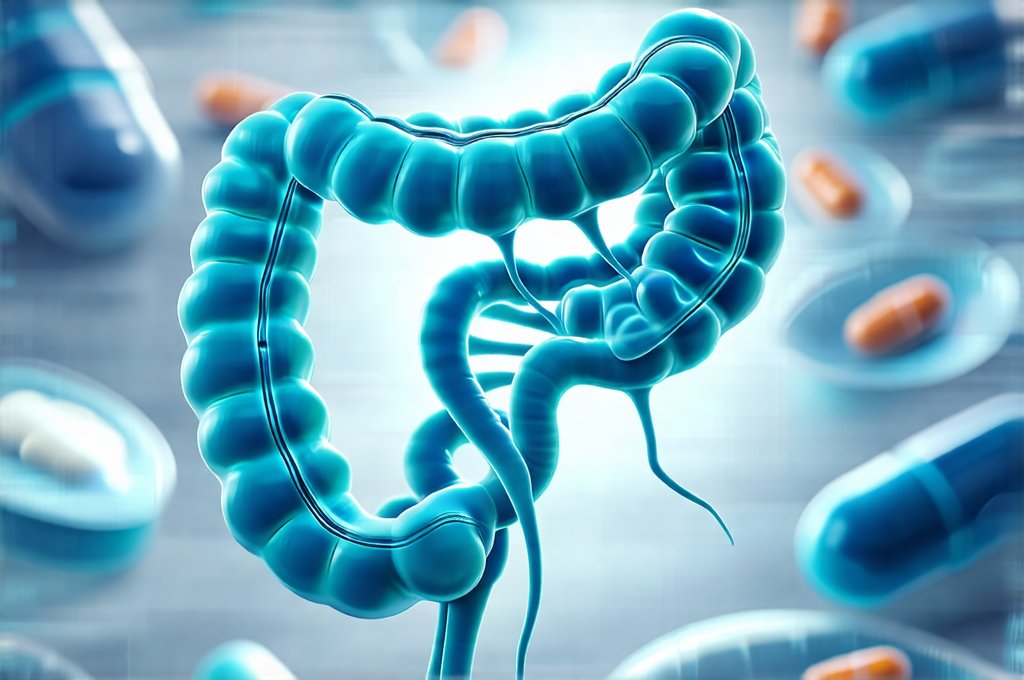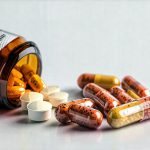Antibiotics are powerful medications essential for combating bacterial infections, but their broad-spectrum nature means they don’t discriminate between harmful bacteria and the beneficial microbes residing in our gut. This disruption to the delicate ecosystem of the gastrointestinal tract can lead to a variety of uncomfortable symptoms – from bloating and diarrhea to more serious issues like increased susceptibility to opportunistic pathogens. While antibiotics are often unavoidable when necessary, understanding how to actively support and restore your gut microbiome after treatment is crucial for regaining optimal health and wellbeing. It’s not just about eliminating the bad; it’s about nurturing the good so they can thrive once again.
The gut microbiome isn’t simply a collection of bacteria; it’s a complex community influencing digestion, immunity, mental health, and even chronic disease risk. When antibiotics wipe out significant portions of this microbial population, the balance is thrown off, creating an environment where unwanted organisms can flourish. This imbalance, known as dysbiosis, isn’t always immediately apparent but can have far-reaching consequences. Therefore, a proactive approach to gut restoration post-antibiotics is vital for minimizing these effects and accelerating recovery. This article will explore practical strategies to help you rebuild your gut health after antibiotic treatment.
Rebuilding the Gut Microbiome: Dietary Strategies
Diet plays an absolutely foundational role in shaping the composition of our gut microbiome. During and, more importantly, after antibiotic use, focusing on foods that nourish beneficial bacteria is paramount. This means prioritizing whole, unprocessed foods while minimizing those that can further disrupt the delicate balance. Think of it as providing the building blocks for a thriving microbial community. Reducing sugar intake is especially important because many harmful microbes thrive on sugars. If you are looking to reset the gut after a period of poor eating, diet is key.
A key element of gut restoration diet involves incorporating prebiotic and probiotic-rich foods. Prebiotics act as food for beneficial bacteria, encouraging their growth and activity. Excellent sources include garlic, onions, leeks, asparagus, bananas (slightly green are best), oats, and apples. Probiotic-rich foods contain live microorganisms that can directly contribute to repopulating the gut. Fermented foods like yogurt (with live cultures – check labels!), kefir, sauerkraut, kimchi, kombucha, and miso are all excellent choices. It’s important to introduce fermented foods gradually as some individuals may experience temporary digestive upset. If you’re experiencing discomfort after trigger meals, probiotics can be especially helpful.
Beyond pre- and probiotics, emphasize fiber intake from diverse sources. Different types of fiber feed different kinds of bacteria, promoting a more robust and resilient microbiome. Good sources include vegetables, fruits (with the skin on where possible), legumes, and whole grains. Hydration is also critical; water helps move food through the digestive system and supports overall gut health. A diverse diet is your best ally in rebuilding a healthy gut.
The Role of Specific Foods & Supplements
Certain foods have demonstrated particularly strong support for gut restoration. Bone broth, rich in collagen and amino acids, can help soothe and heal the gut lining, which is often compromised during antibiotic treatment. Collagen provides building blocks for repairing damaged tissue. Similarly, incorporating omega-3 fatty acids from sources like fatty fish (salmon, mackerel), flaxseeds, and chia seeds can reduce inflammation in the gut. Inflammation hinders microbial diversity and recovery.
Supplements can be a useful adjunct to dietary changes, but they shouldn’t replace whole foods. Probiotic supplements are widely available, but choosing the right one is crucial. Look for a supplement with multiple strains of bacteria (diversity matters!) and a high CFU (colony forming units) count. It’s also helpful to select a probiotic that has been clinically studied. However, remember that probiotics are not a one-size-fits-all solution. What works for one person may not work for another. If you’ve had trouble rebuilding gut health, supplements can be a helpful addition to your routine.
Consider the potential benefits of L-glutamine, an amino acid shown to support gut lining integrity and reduce inflammation. Some individuals find it helpful in minimizing digestive discomfort post-antibiotics, but it’s best discussed with a healthcare professional before adding it to your routine. Supplements are tools to complement, not replace, a healthy diet.
Avoiding Gut Disruptors
Just as important as incorporating beneficial foods is avoiding those that can hinder gut recovery. Highly processed foods, sugary drinks, artificial sweeteners, and excessive alcohol consumption all contribute to dysbiosis and inflammation. These foods often feed harmful bacteria while suppressing the growth of beneficial ones.
Minimize your intake of refined carbohydrates (white bread, pastries) and unhealthy fats (fried foods, processed snacks). These can disrupt gut motility and exacerbate digestive symptoms. Pay attention to food sensitivities – sometimes antibiotic use can temporarily increase sensitivity to certain foods like gluten or dairy. Consider an elimination diet under the guidance of a healthcare professional if you suspect food intolerances are contributing to your symptoms.
Artificial sweeteners, in particular, have been linked to negative effects on the gut microbiome. Research suggests they can alter microbial composition and even contribute to glucose intolerance. Prioritizing whole, unprocessed foods is the cornerstone of gut restoration. You may also want to learn how to use spices if you are sensitive to certain flavors.
Lifestyle Factors Supporting Gut Health
Beyond diet, several lifestyle factors significantly influence the gut microbiome. Stress management is paramount; chronic stress negatively impacts gut health by altering motility, increasing inflammation, and reducing microbial diversity. Techniques like meditation, yoga, deep breathing exercises, or spending time in nature can help mitigate stress levels.
Adequate sleep (7-9 hours per night) is also critical for gut health. Sleep deprivation disrupts the circadian rhythm, which influences gut function and microbial composition. Aim for a consistent sleep schedule to support your body’s natural rhythms. Regular physical activity promotes gut motility, reduces inflammation, and enhances microbial diversity. Even moderate exercise, like walking or cycling, can have significant benefits.
Finally, be mindful of environmental toxins. Exposure to pesticides, herbicides, and other chemicals can negatively impact the gut microbiome. Choose organic foods whenever possible and minimize exposure to harsh cleaning products and personal care items. A holistic approach that addresses diet, stress, sleep, exercise, and environmental factors is essential for optimal gut health.
It’s important to remember that rebuilding your gut microbiome takes time and consistency. There isn’t a quick fix, but by adopting these strategies, you can actively support the restoration of a healthy and thriving gut ecosystem – paving the way for improved digestion, enhanced immunity, and overall wellbeing. If symptoms persist or worsen despite these efforts, consult with a healthcare professional to rule out underlying issues and receive personalized guidance. Sometimes it’s hard to rebuild appetite after illness – don’t hesitate to seek support! And if you are looking for the right supplements, consider finding gut healing supplements.


















